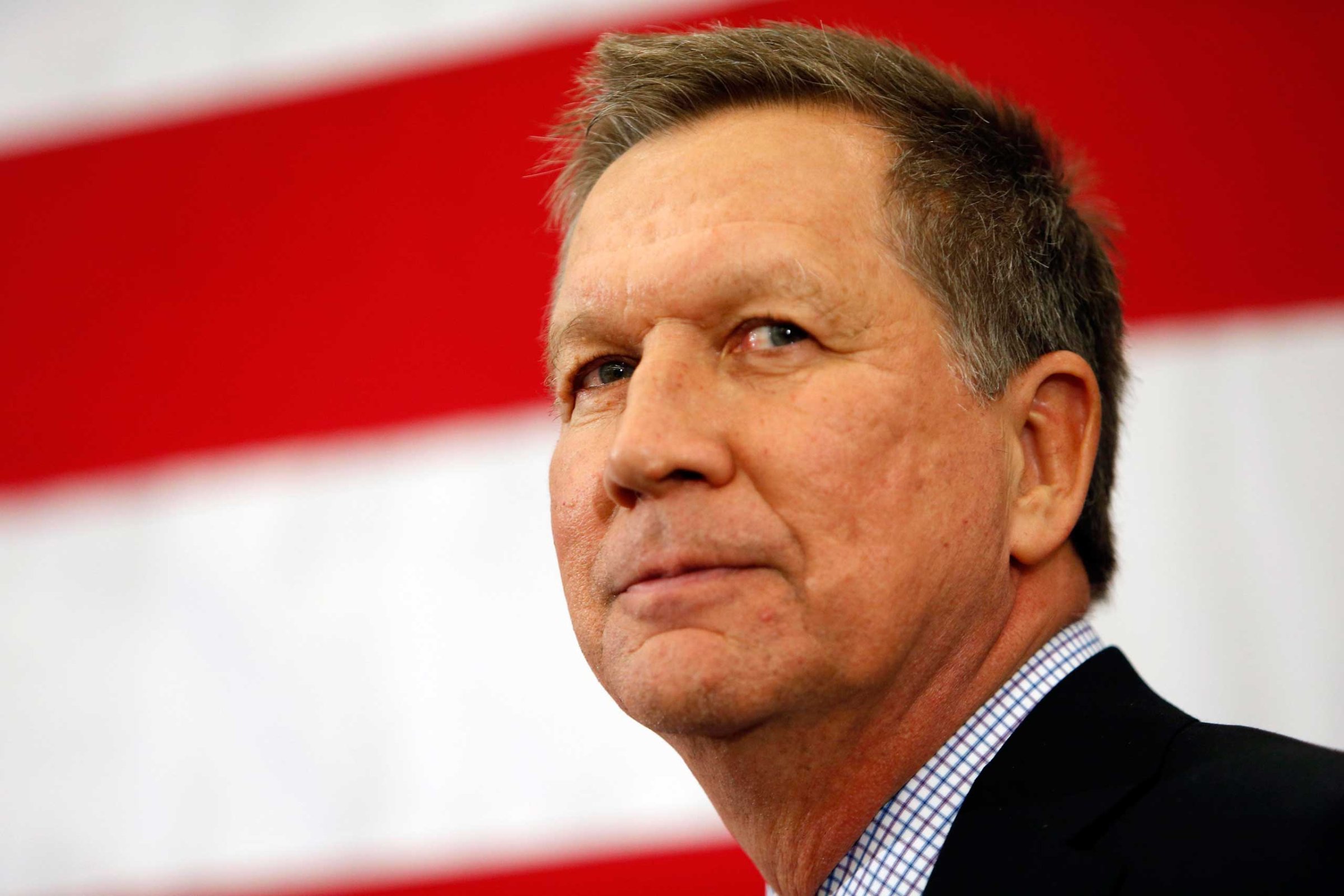
Ohio Governor John Kasich turned heads in political circles earlier this month when he announced the hiring of a pair of GOP operatives with checkered histories to run his presidential campaign.
John Weaver and Fred Davis were the strategists behind former U.S. Ambassador to China Jon Huntsman’s ill-fated 2012 campaign for the presidency. Before that, they worked for Sen. John McCain. But to those who know Kasich, their hiring made perfect sense—he’s planning to run a similarly unconventional campaign for the White House. “Here’s the thing you have to realize, the Republican Party is my vehicle, and not my master,” he tells TIME.
Casting himself as a “change agent,” Kasich has overseen an economic revival in Ohio, and won re-election in the swing state by a 31% margin over a weak Democratic opponent. It was a sharp reversal from 2011—his first year in office—when Kasich’s poll numbers plummeted amid a failed effort to curtail the power of state public sector unions in an effort to control the state budget.
Kasich unsuccessfully ran for the White House in 2000, where he was edged out by another Bush’s well-funded campaign. “The issue was money-M-O-N-E-Y,” he told the New York Observer in 2001. Kasich now says he was too young that time around, pointing to support he is receiving from those who backed Bush over him in 2000.
He endorsed George W. Bush, calling him “a soul brother” for his support of compassionate conservatism, a theme at the center of Kasich’s campaigns. “I think that it’s important for the GOP, must most important for me to be able to talk about the kindness of conservatism,” Kasich says.
To that end, he defends expanding Medicaid under Obamacare, despite vigorous opposition from Republicans. “I’ve never thought anything about it. It was the right thing to do,” he says. “We’re helping the drug addicted, the working poor, the mentally ill. I didn’t see it as standing up to my party really, I just saw it as carrying out something that I thought was important for my state.”
A former investment banker, he has no regrets about his time at Lehman Brothers, but says he supports capital requirements for large banks. Kasich tells TIME he opposes increasing taxes, but that he will not sign any pledges to that effect.
TIME caught up last week with Kasich in Utah, where he was attending the E2 Summit organized by former Republican presidential nominee Mitt Romney. Here is a transcript of the interview.
TIME: You’re having fun out there.
Kasich: Most of the time, it’s fun. I get tired once in a while, and that’s not ever fun to be tired, but you know, I’m enjoying it.
TIME: You did this in 2000 running against another Bush.
Kasich: It was a different time. I was just a young man, and you know, people said, look we like you and come back another day.
TIME: But you also lamented at the time running against Bush money. You’re set to do that again against Jeb’s $100 million.
Kasich: Our goal, if I become a candidate it’s going to be because we have enough resources where we think we can at least compete in the early states. We’re not going to get anywhere close to that, but could we have enough to put gas in the plane so it could take off the ground, and that’s an assessment that we’re in the process of making.
TIME: If you had to put odds on it?
Kasich: We don’t know yet. We’re getting close. We’re going to have to decide things relatively soon. And how do I feel about it, I feel pretty good. I feel like we’re making progress.
TIME: Was this meeting helpful in that regard?
Kasich: Not yet, we’ll see. We have lots more meetings. I came here because Mitt invited me, I didn’t come to some of the other ones. I thought it was important to get out here and let people—a lot of people said we know of him, but we don’t really know him. In that regard this was helpful. I hope. I don’t know what the people were saying. I don’t know.
TIME: You talked about your approval rating taking a hit your first year as governor. What did you learn from that?
Kasich: Got crushed! The one thing that I really learned from that is, you really want to unite. And if you have to fight and you divide, that’s okay, but just don’t do it all the time. Look, we were $8 billion in a hole, we had many things we had to do to climb out of that. And once we started climbing out, we were in a better position. I’m also a change agent. And when you’re a change agent, it shakes people up. Why do you think when people hear me talk they get like, what is this guy, who is this guy. Why doesn’t he say what we expect him to say. That kind of message, it rattles people. And then peoples started to get used to me. I wouldn’t be surprised if my poll numbers went down again. That’s just the way it is. You can’t worry about it.
TIME: What’s the better metric?
Kasich: Results. Harry Truman did not run for re-election because people thought he would not win. He didn’t think he was going to win. It turns out he was one of our great presidents. It’s results. It’s not polls, and popularity. They ran Winston Churchill out of politics for a while, but look at what he ultimately did. It’s results that matter, nothing other than that.
TIME: You got your results. You left Washington. You went to Lehman. You were there during the financial collapse. What did you learn from that, in terms of how banks and financial institutions should be regulated.
Kasich: On the biggest issue, they’re already imposing capital requirements now. But one of the things you don’t want to do is treat the big boys the same way you treat the regional boys, because you then start snuffing out opportunity. When you step on the air hose and people can’t loan money, that’s like the kiss of death for business. Business has to have capital. At the same time, I think Wall Street is a necessary ingredient of the global economy, but you know, you’ve just got to keep people realizing that helping clients is the most important thing, not helping yourself.
TIME: Any regrets from that period?
Kasich: It was fantastic. Are you kidding? Regrets? I thought it was a fantastic time. I traveled all over the country. I got an incredible education. I worked my tail off. It was great.
TIME: What did you learn?
Kasich: I worked with private equity. I worked with venture capital. I worked with many different times of companies. I learned about how America works, how free enterprise works, how business executives think, how decisions get made. It’s an incalculable thing that I learned.
TIME: Last time around, candidates were asked whether they would take a 10-1 deal on spending cuts to tax increases. Would you?
Kasich: Right now, I just don’t think that revenue is what we should be talking about. I think that, look, I ran the budget committee. I was one of the architects of the balanced budget. We actually cut taxes then. I had to remain President Obama that early in my tenure as governor. I think let’s focus on changing these programs and making them more efficient. I worry about spending more money, because you know what happens, every time you put more money into the system, they spend it and they don’t do what they’re supposed to do.
TIME: Would you sign something like the Americans for Tax Reform pledge?
Kasich: I’m not signing any pledges. I’m not signing any pledges. I’m just not going to sign any pledges. My record speaks for itself.
TIME: The debt ceiling will be hit this fall. What should Republicans in Congress do?
Kasich: They should be working with their colleagues, working with the administration to put something together that’s going to get us to balance over time.
TIME: Should that be a prerequisite to raising the debt ceiling?
Kasich: I’m never going to say what should be happening regardless. I’m not going to respond to that.
TIME: What did you learn from standing up to some in your own party on Medicaid expansion?
Kasich: I’ve never thought anything about it. It was the right thing to do. We’re helping the drug addicted, the working poor, the mentally ill. I didn’t see it as standing up to my party really, I just saw it as carrying out something that I thought was important for my state. Here’s the thing you have to realize, the Republican Party is my vehicle, and not my master. My job is to try to figure out how to fix things, and I’m going to fix things as best as I can. I’m going to get a team together to fix things. And I can’t sit around and worrying what the heck the chairman of the Republican Party thinks about what I’m doing. I have to do what has to be done to bring improvement. What would I do? Say, oh well, the Republicans don’t like this therefor I shouldn’t do it. What kind of a government would that be. We’re not a parliamentary system.
TIME: In 2011 you signed an executive order banning discrimination based on sexual orientation, putting you on the forefront of states controlled by Republican governors. What did you think of the RFRA debate in Indiana and elsewhere?
Kasich: We don’t have that issue in Ohio, and I just don’t think we should discriminate against anyone, plain and simple.
TIME: That executive order did not include protections based on gender identity. Is that something you would be open to?
Kasich: I put the executive order out and it covers who it covers. And if I saw a reason to investigate something else, I’d look at it.
TIME: On foreign policy, some in your party have taken a more isolationist approach, the Rand Paul model—
Kasich: No. I don’t think America should be the policeman of the world, but we have to be engaged and we have to be a leader, and that comes from strong economic growth, a strong military, good diplomatic efforts, and integrating our business community. I just think it’s a whole new paradigm. And Gen. Jim Jones has been proposing sort of—that our military commanders, combatant commanders, work closely with our diplomatic corps, and including the business community in all this. People would say we’re already doing it. I don’t believe it. I think there needs to be more of an integration, so that we look at these issues holistically.
TIME: Soft power?
Kasich: I would say some soft, and some really tough power. Let’s think about how we can bring economic development, let’s see if people could learn a little more of the rule of law, rather than the rule of man, which is kind of what you see in China now. And business people have a a good view of what’s happening internally in countries, and they can be a positive force. And so I think there needs to be a full integration of all of that. But you have to have a strong military and it needs to be rebuilt.
See the 2016 Candidates Looking Very Presidential
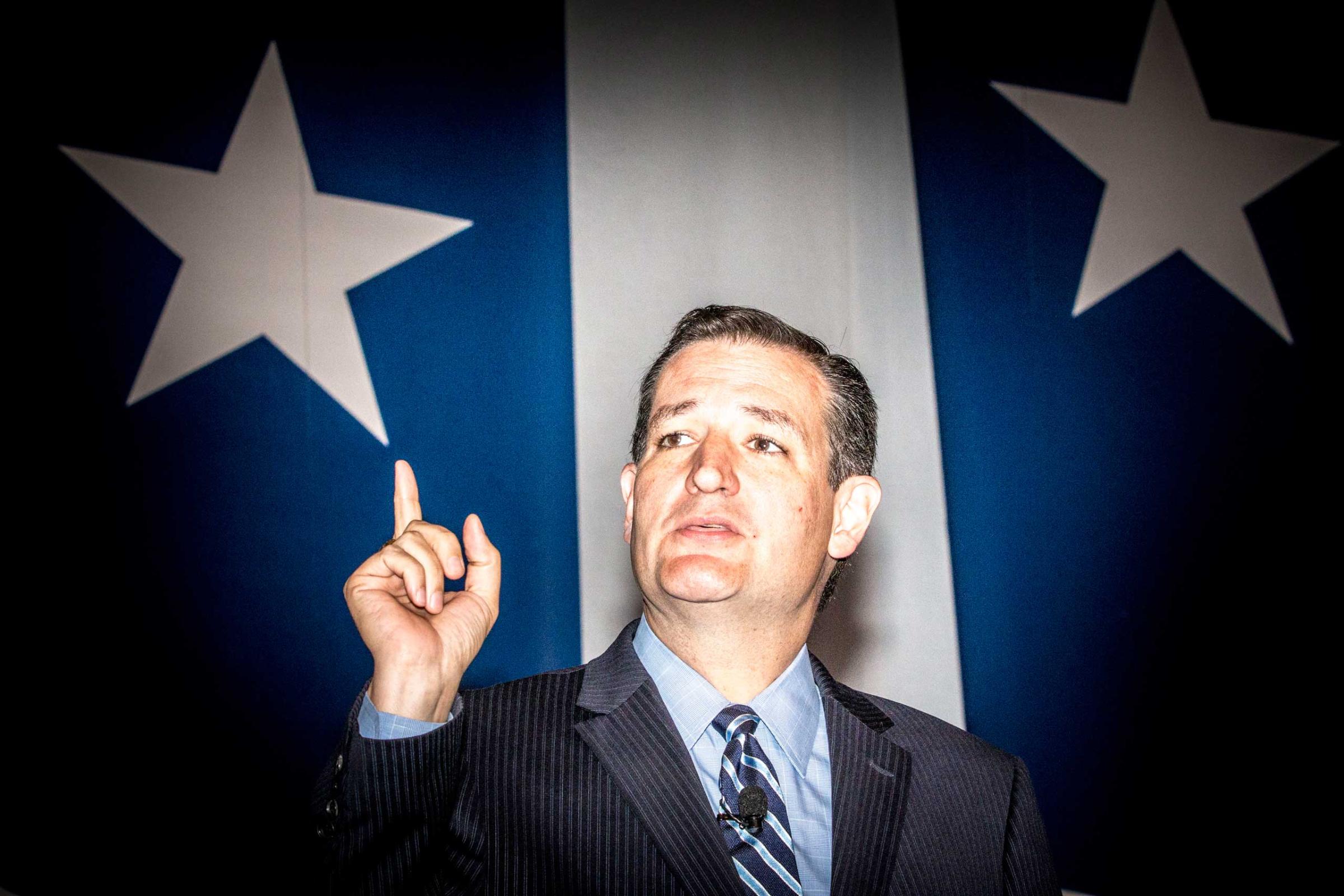
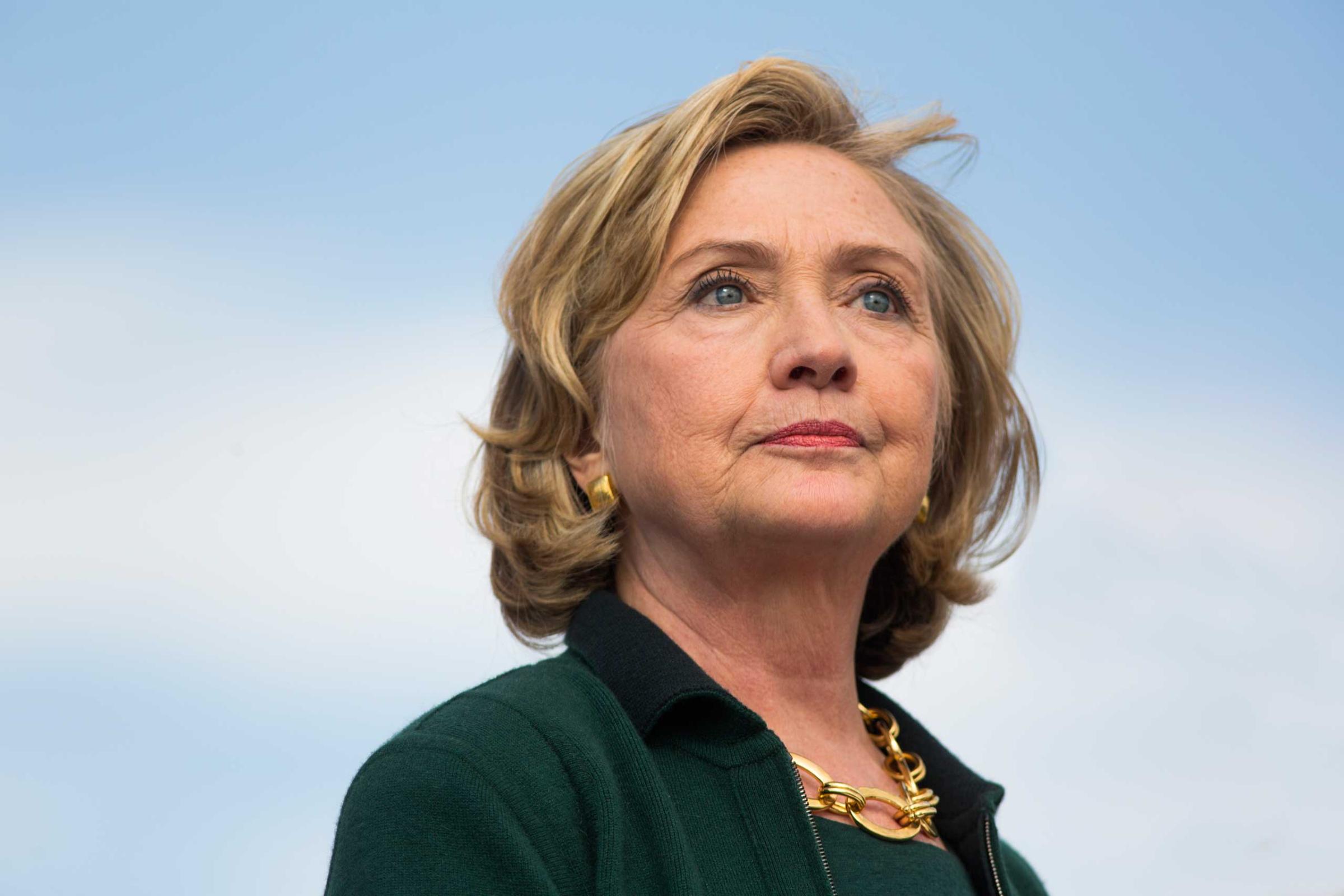
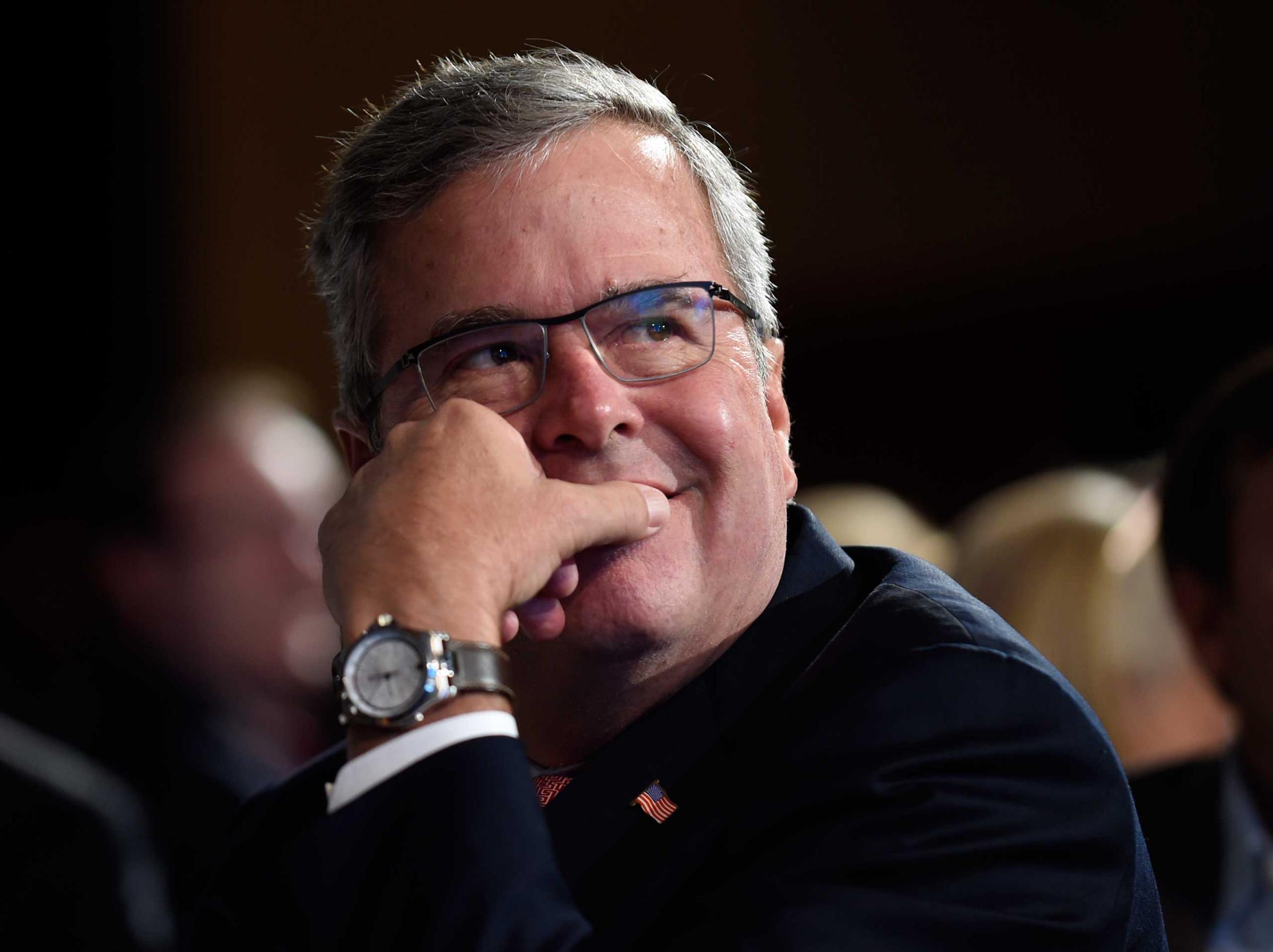
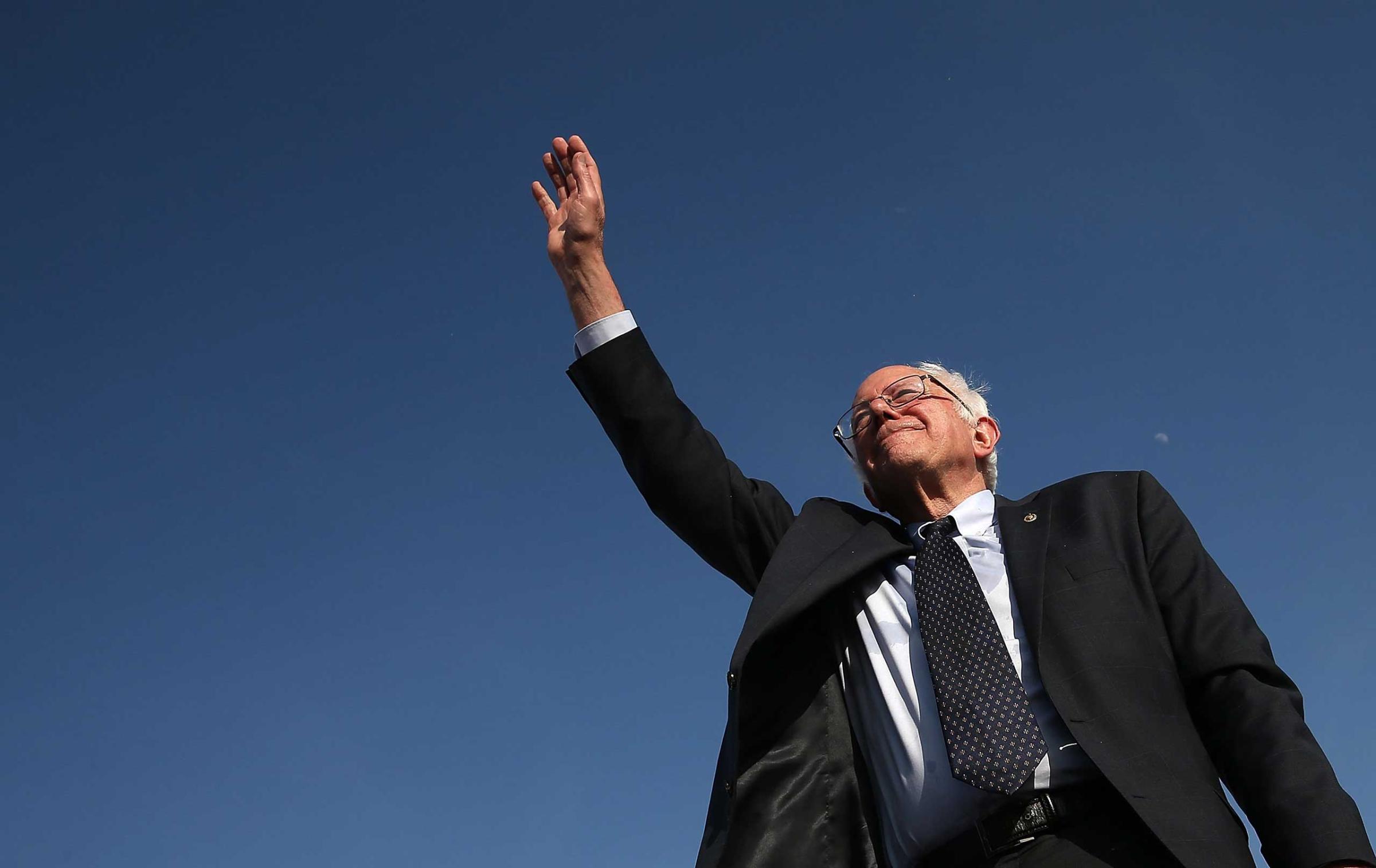
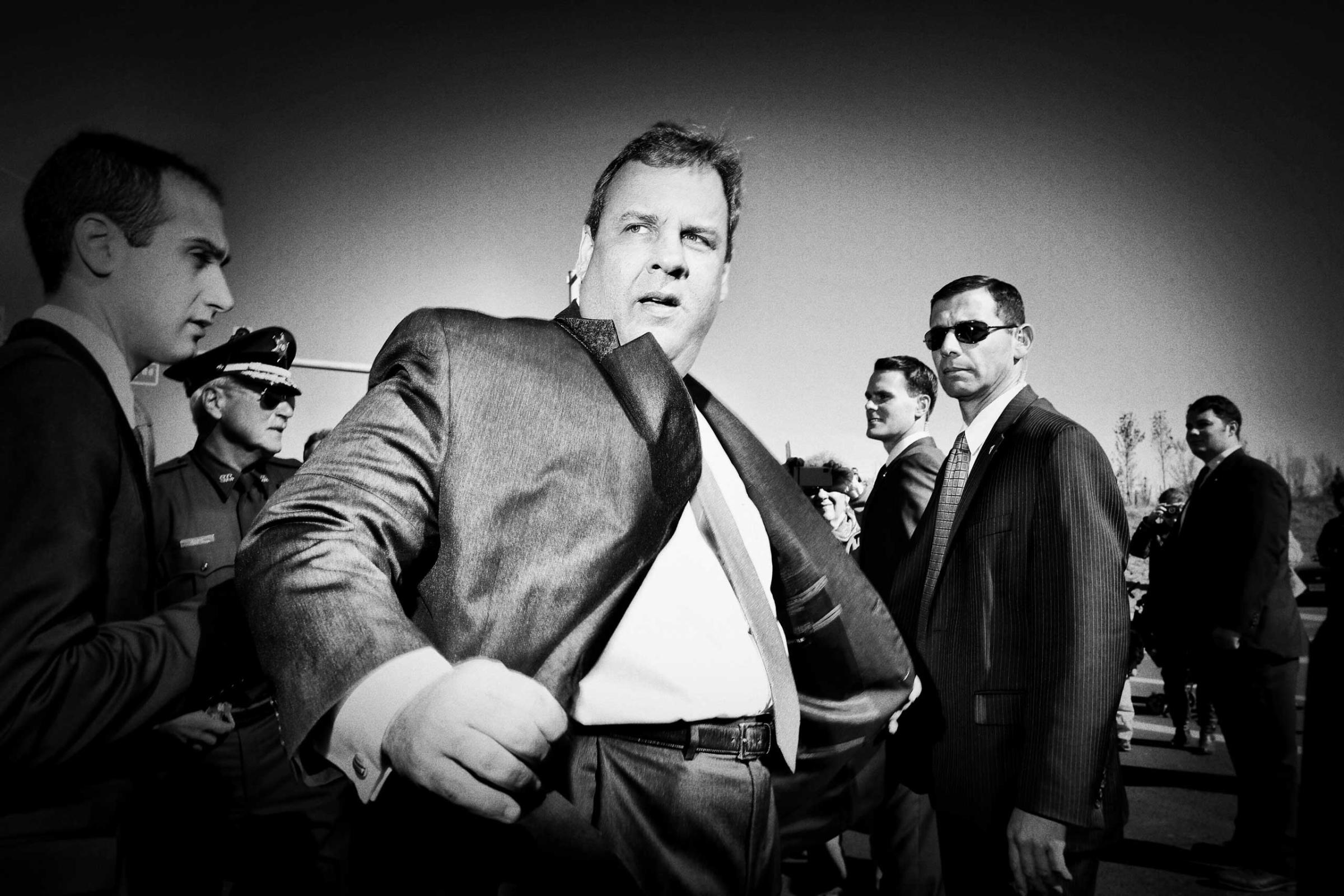
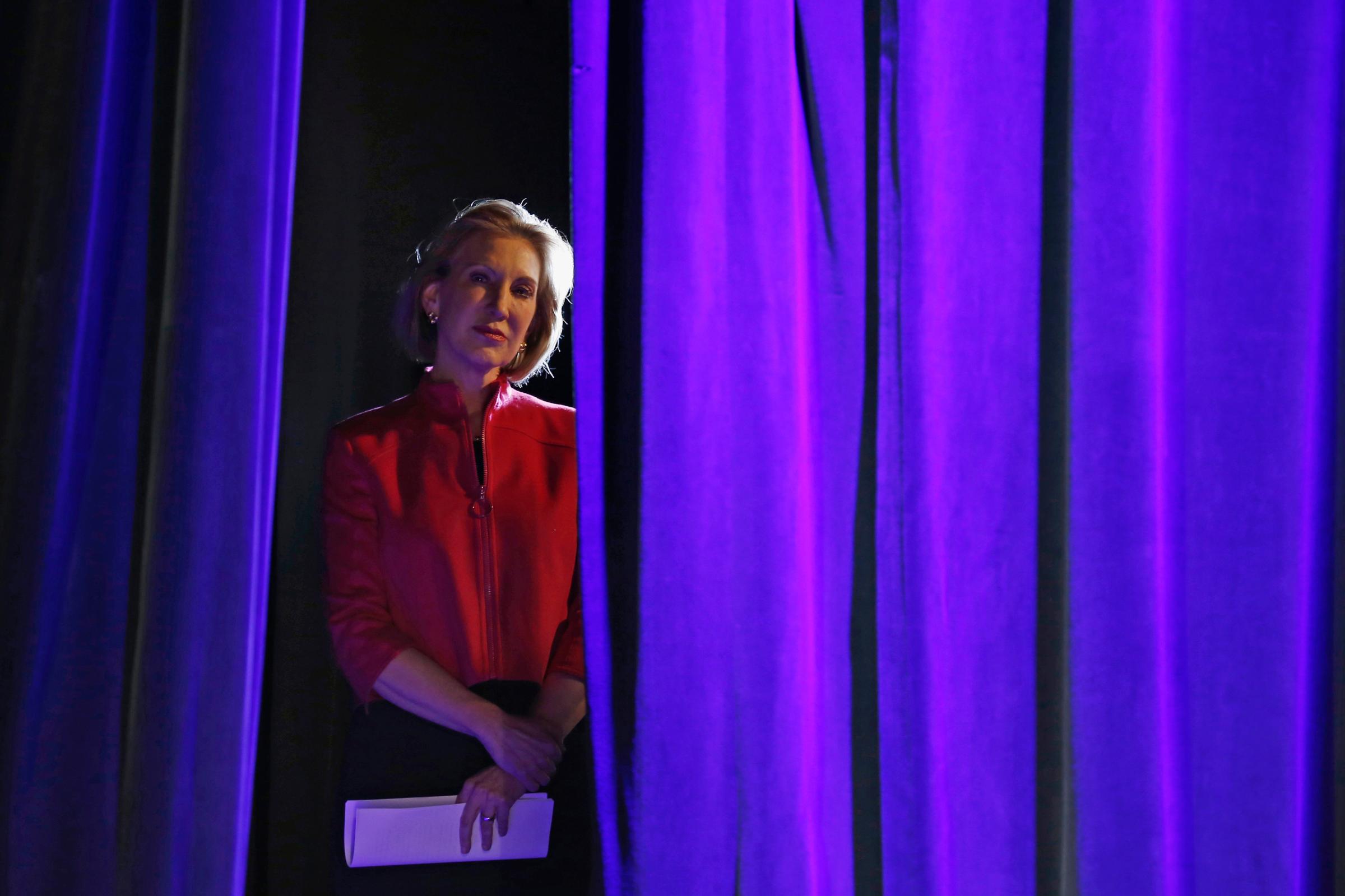
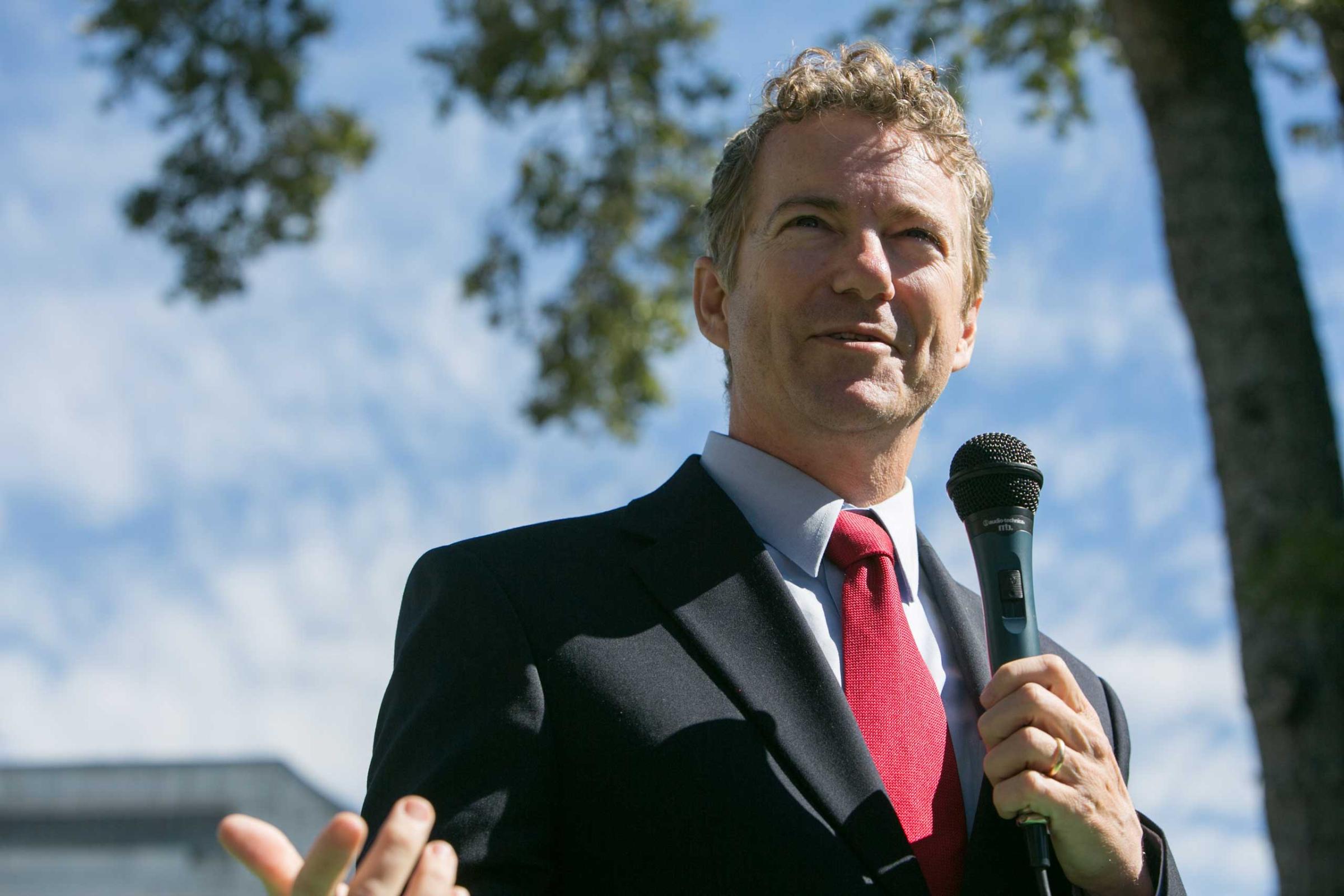
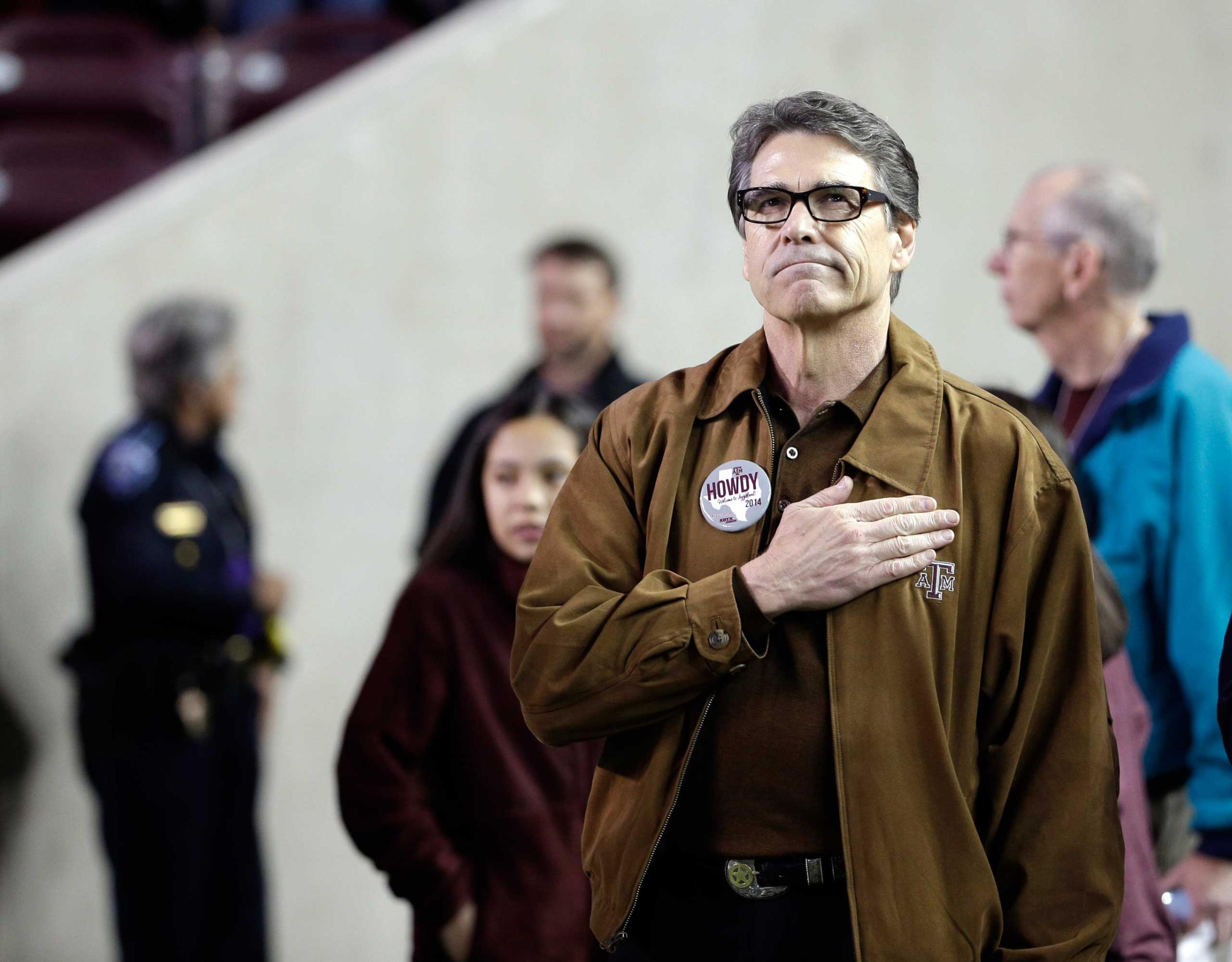
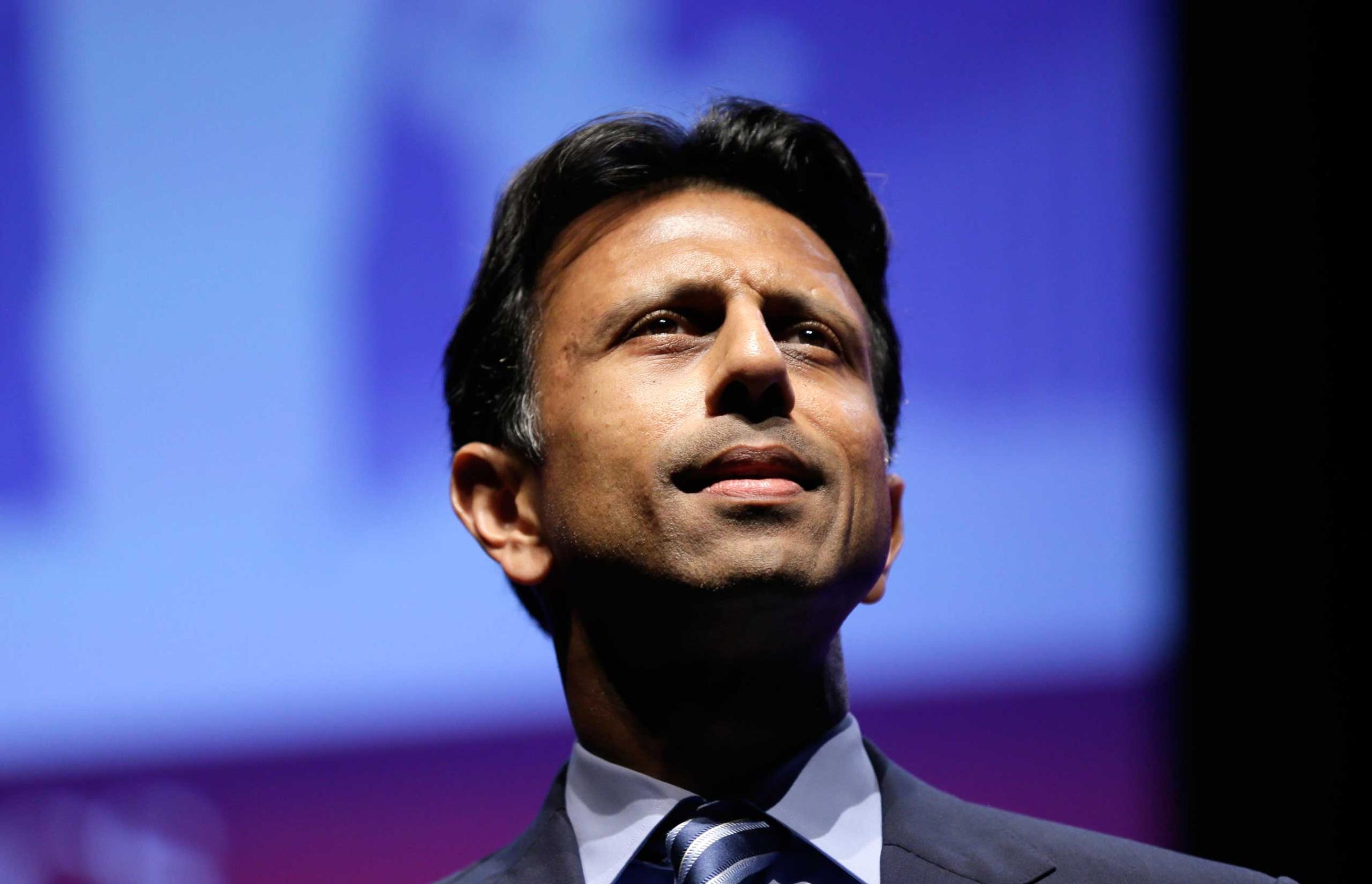
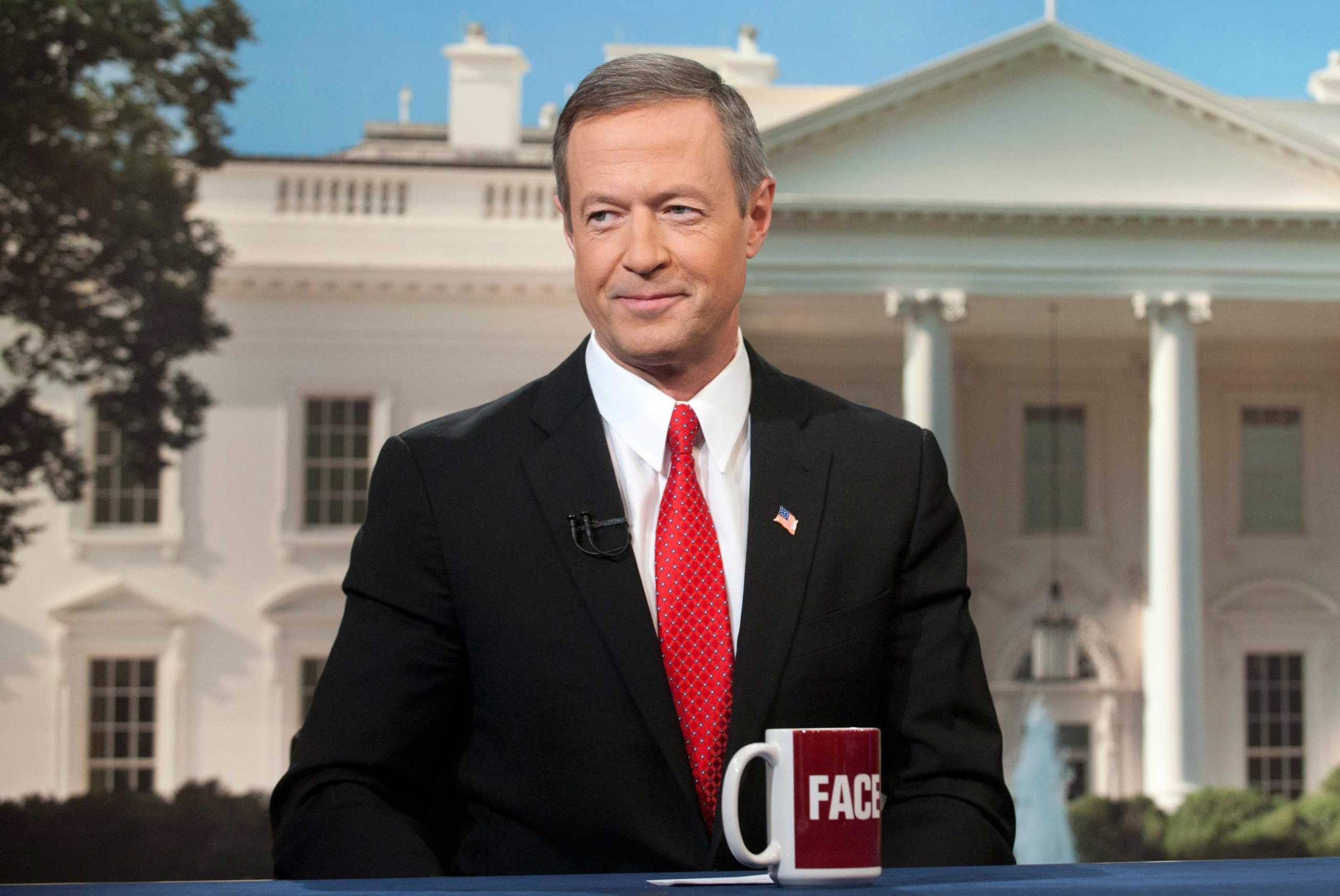
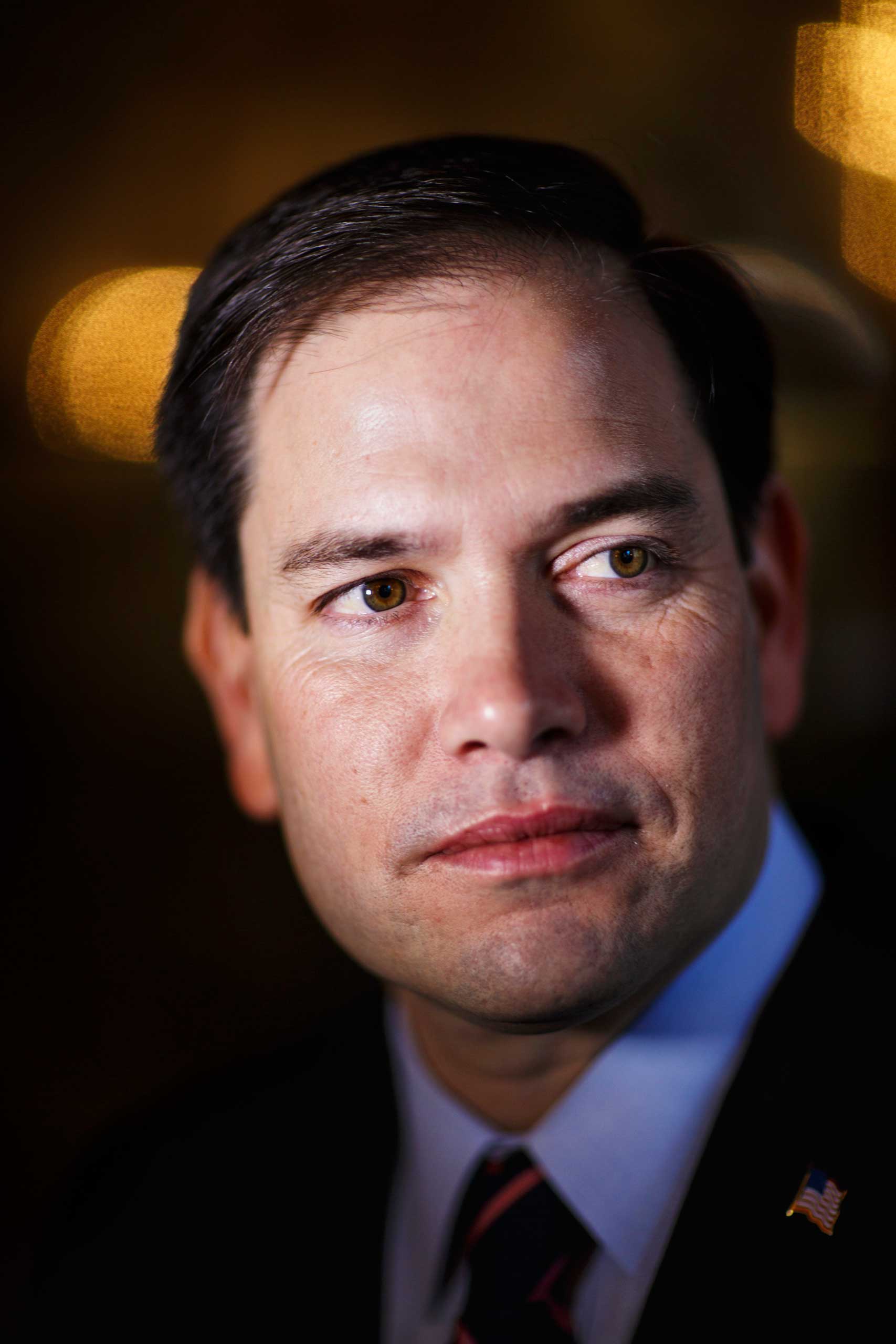
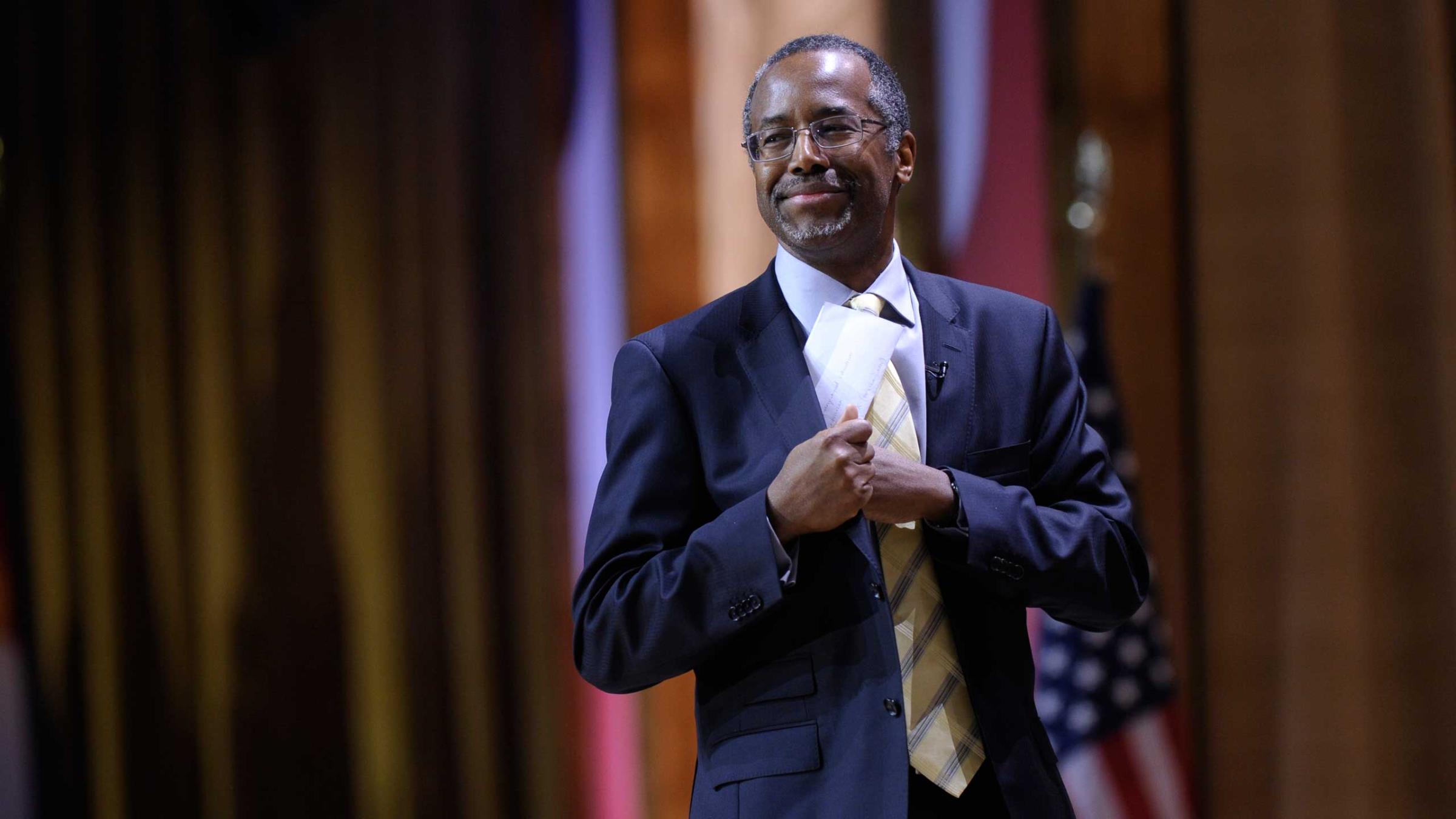
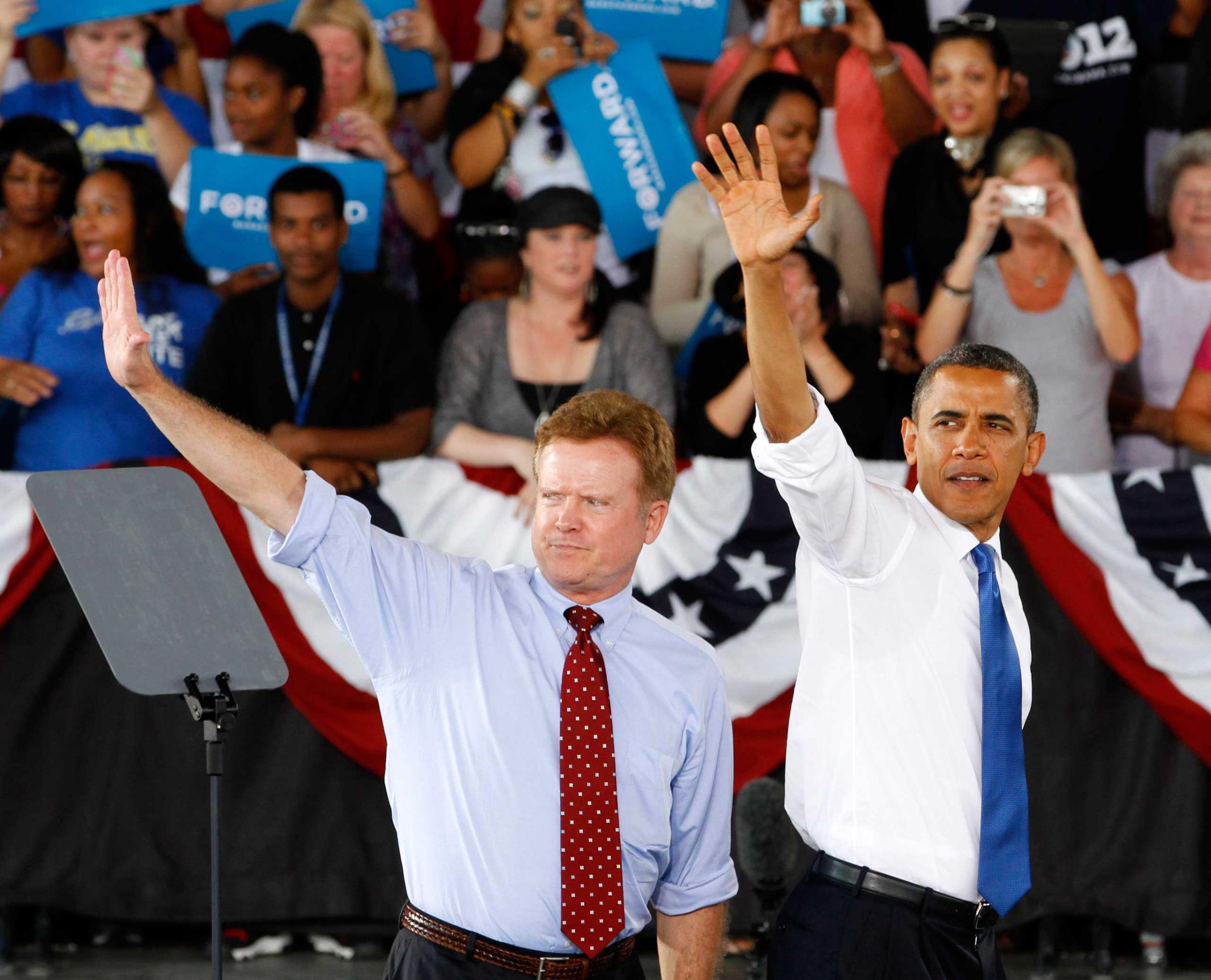
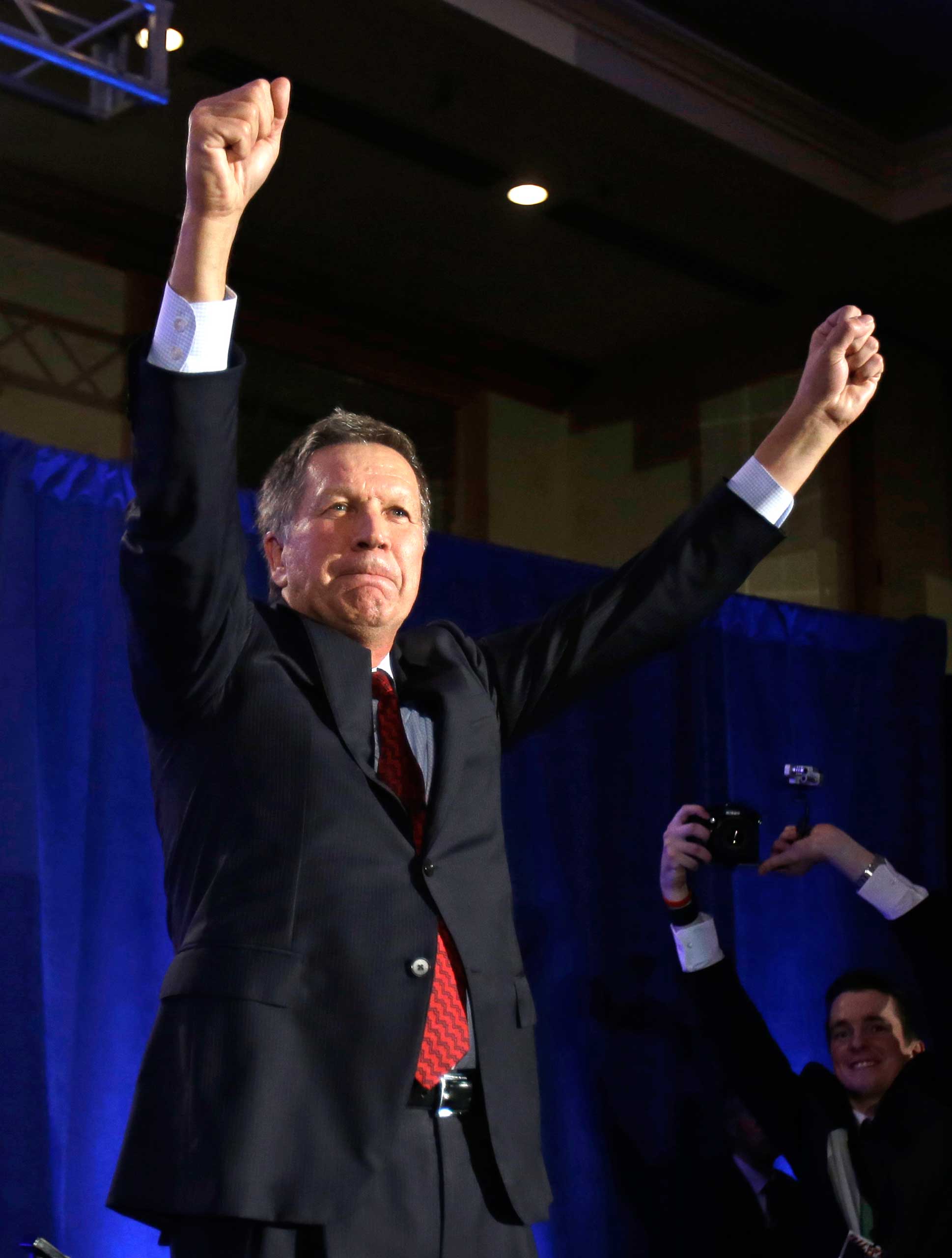
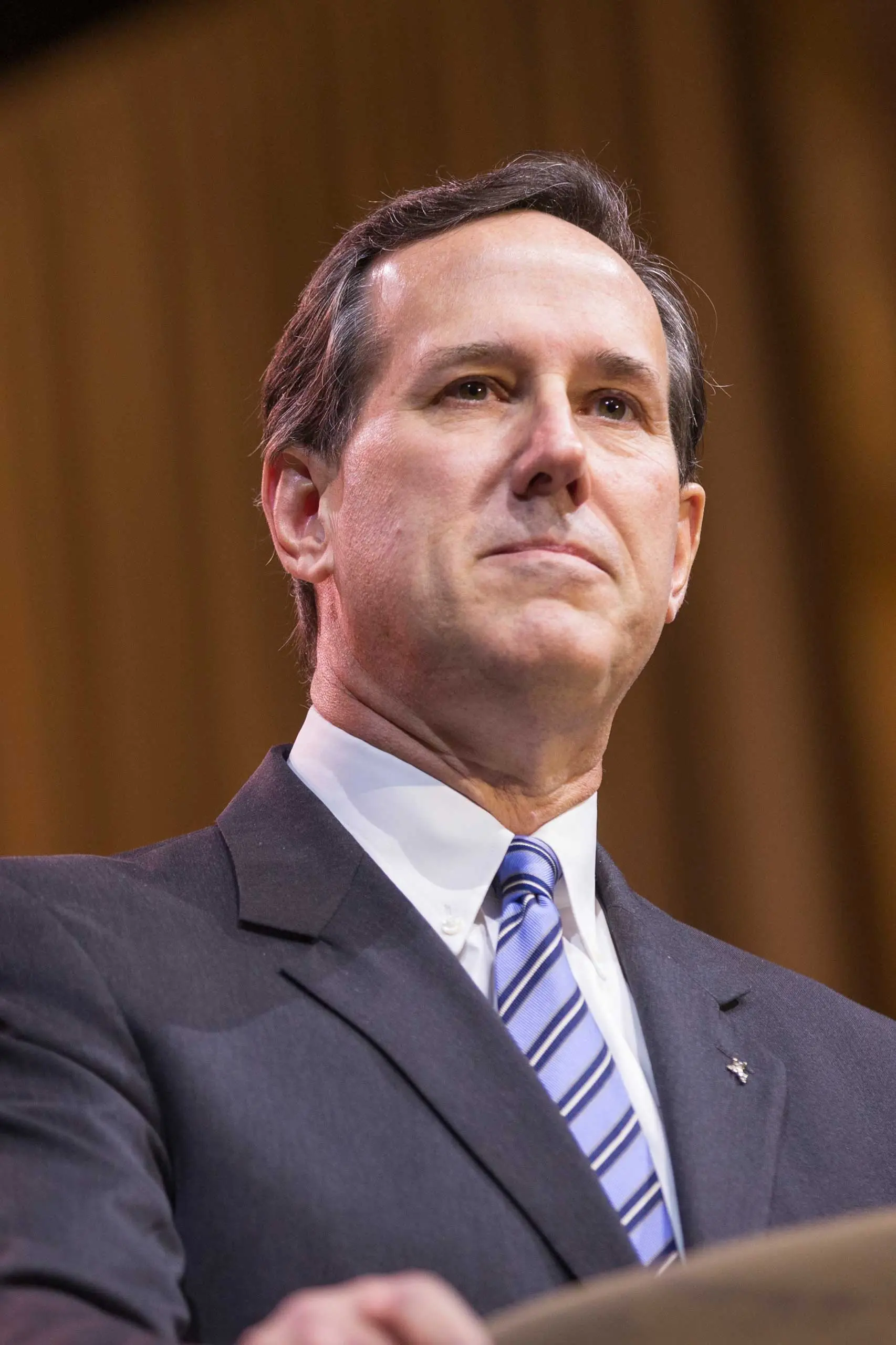
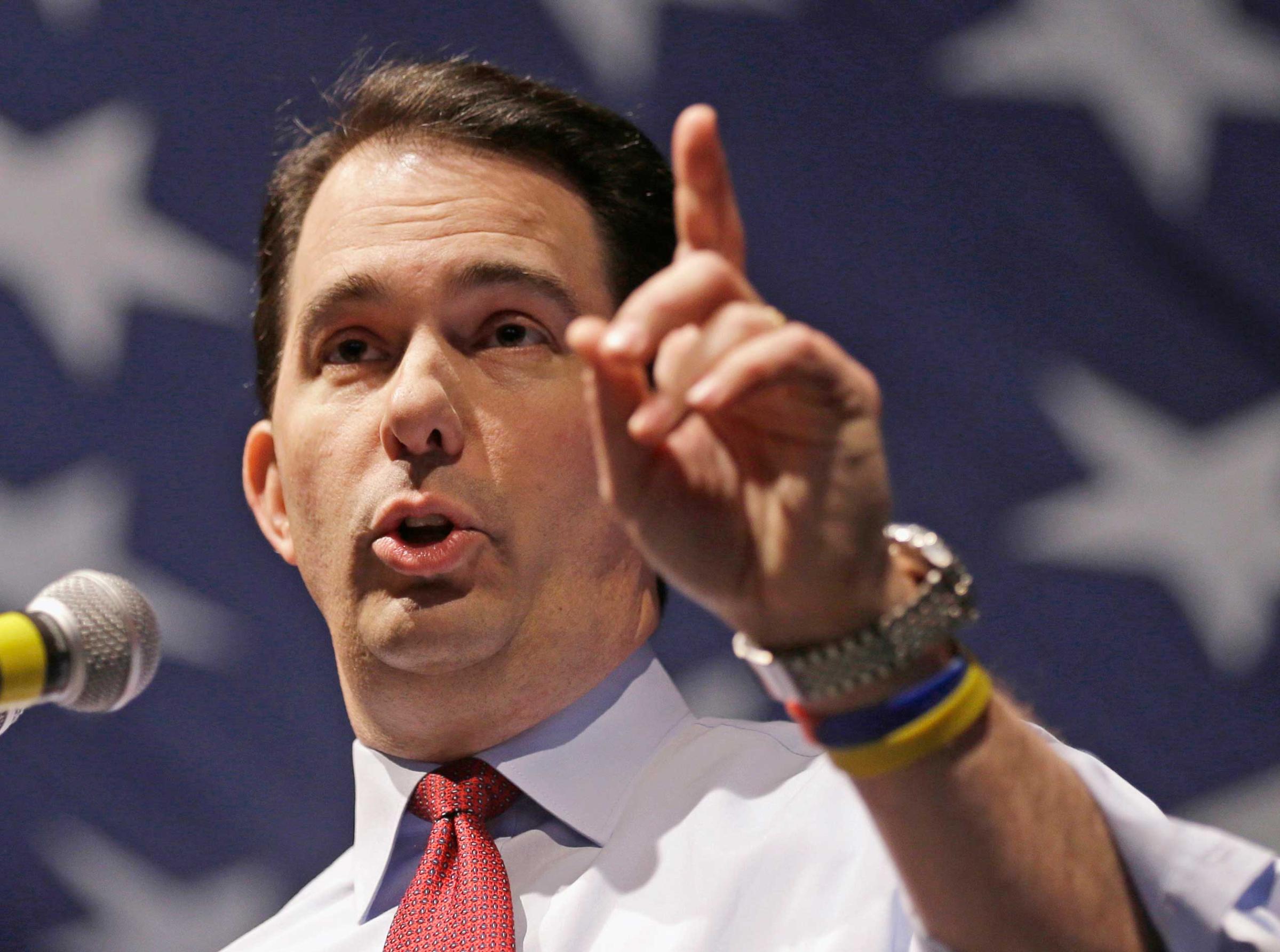

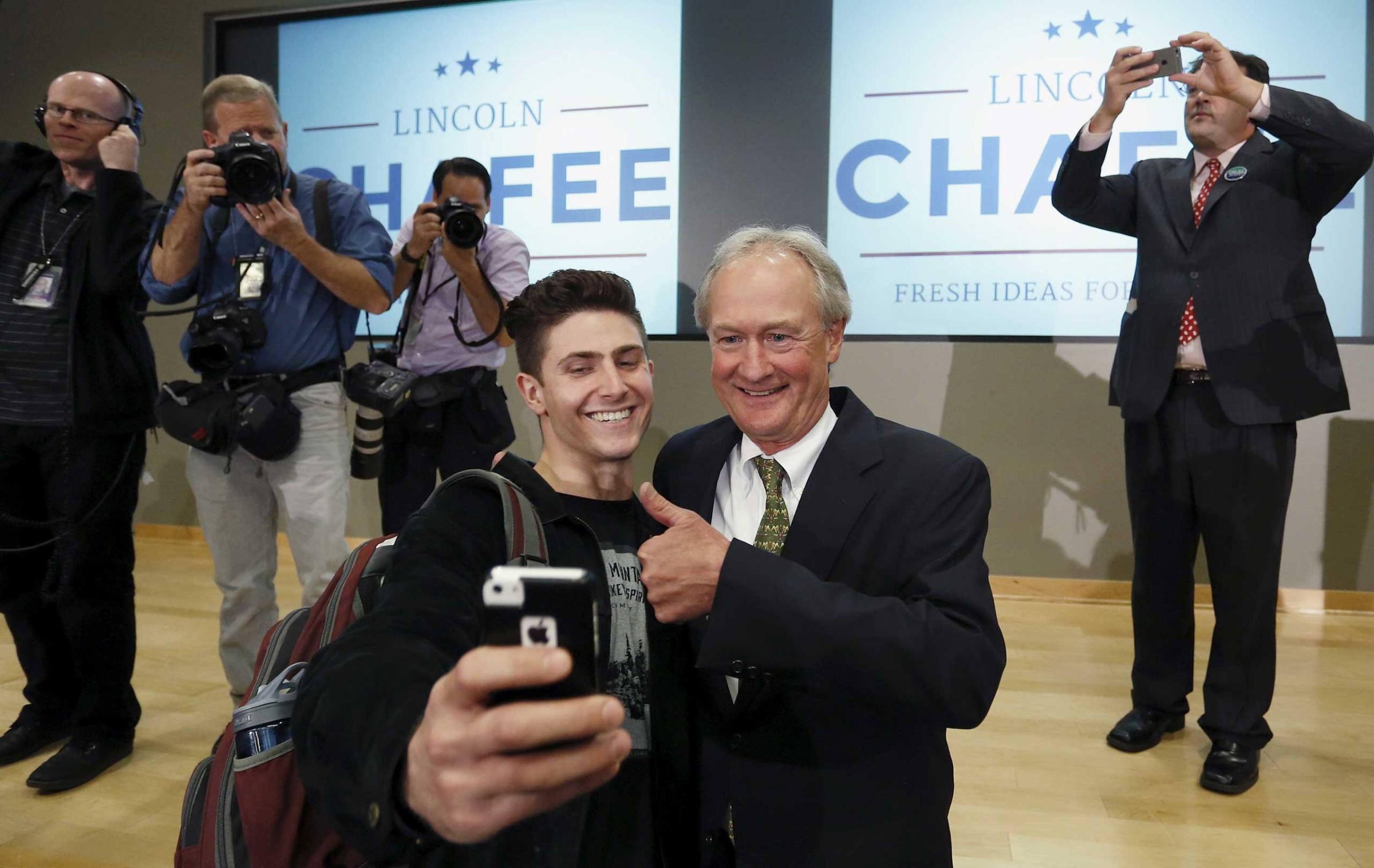
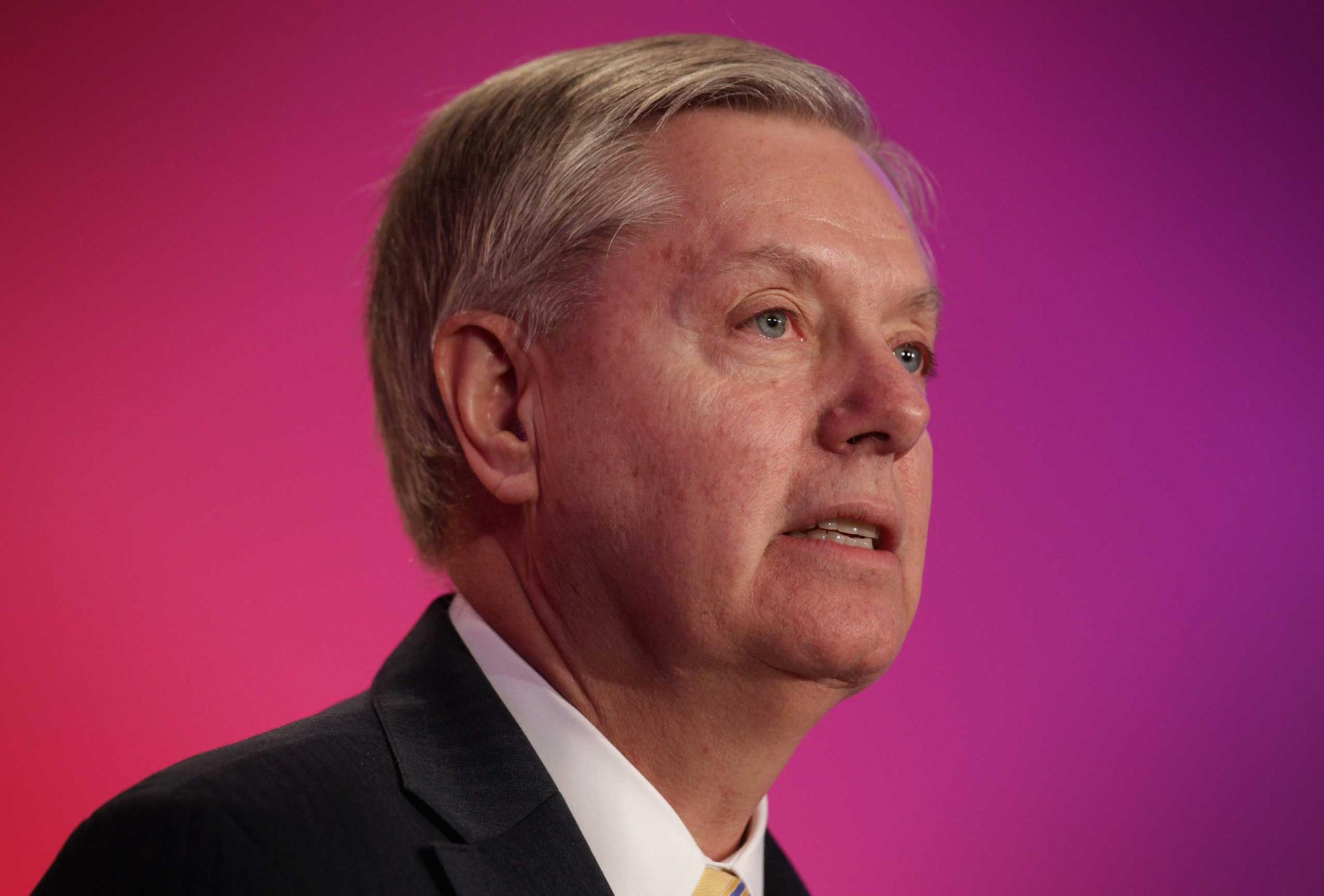
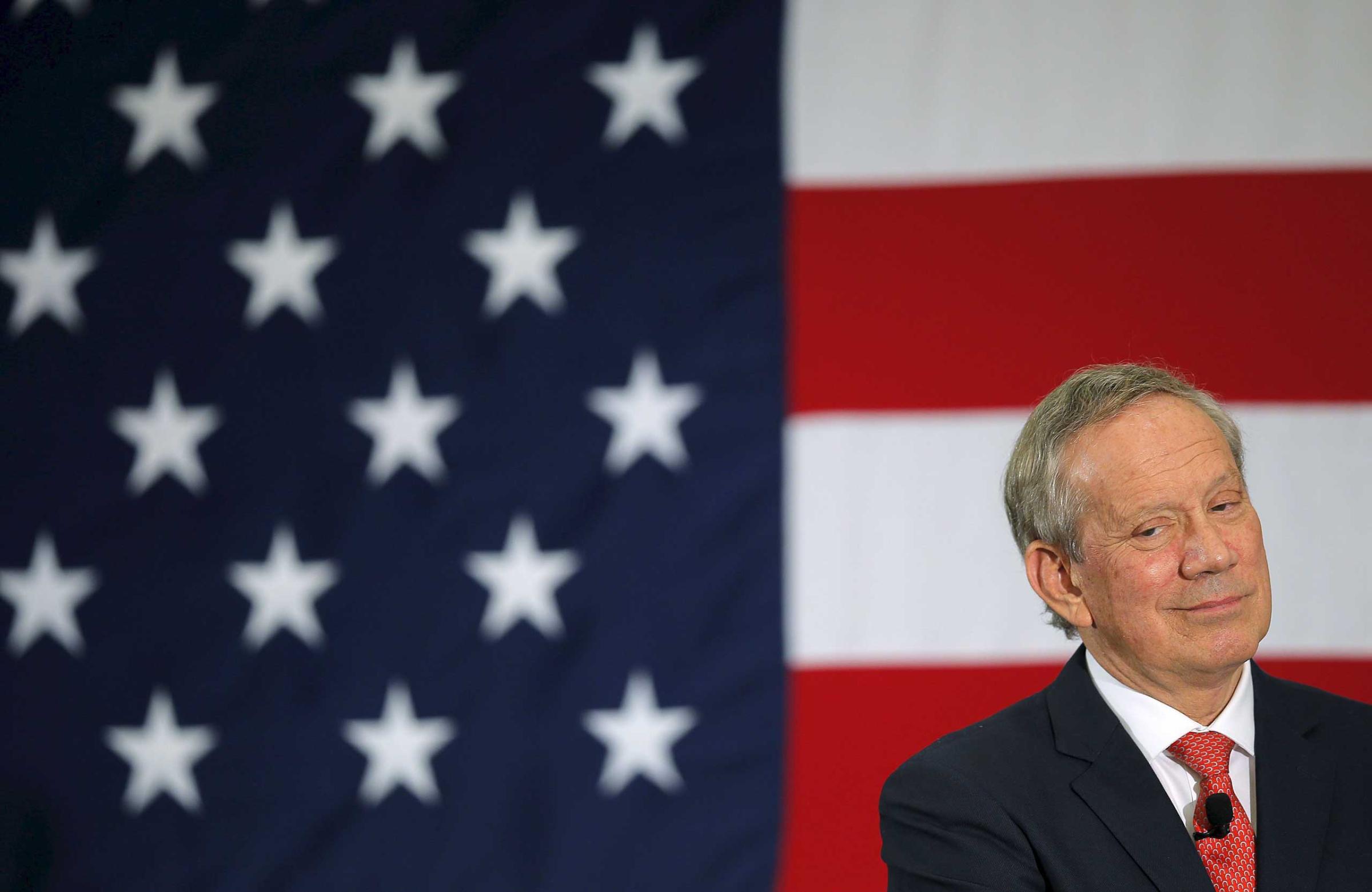
TIME: You spoke about the need to reform the military. How would you go about doing that?
Kasich: The whole thing needs to be looked at. We still have systems we don’t need, we have infrastructure we don’t need. Is there a way to preposition equipment. Are there technologies that can take the place of more expensive, traditional military equipment. Can we get our allies to become more robust. It’s a whole series of things that you need to do. But the building itself—I mean, why do you have over 900,000 bureaucrats working in one way or another in all these systems. It becomes complicated. It’s a lot of stuff that needs to be done.
TIME: Are there specific programs that you have in mind?
Kasich: Well, that’s a process we’re going through right now. And I’ll have more to say about that in the future.
TIME: There are a number of military bases in Ohio, you mentioned base closures, should they be—
Kasich: I think that bases should be closed on the basis or opened on the basis of what they contribute to our national security. I went through when I was a congressmen, one of my operations shutting down. Look, I was at Pease Air Force Base, it got shut down, and they turned lemons into lemonade. The Pentagon needs precious resources to build the strength of America, and we can’t say, ‘this is really important to this community, and it’s really not vital to the national security, but we ought to do it anyway.’ So, I think we have to have a discipline on this.
TIME: What is the greatest impediment for you, as you potentially go down this road? Money? Name-ID? Convincing voters you have the right vision?
Kasich: I don’t really see — I’m pretty optimistic about what I’m seeing. I know that the world would shudder, if I were able to clone me, but it would be great if there were more of me to go around so you could get to more places to talk to more people. I would say, I don’t kind of look at life that way. I’m not looking at impediments right now. I just look at opportunities. As Arnold Schwarzenegger told me one time, “Love the beatings.” [in accent] As Arnold told me one time, “Going down the slope, love the moguls.” I think that’s right, that’s a good attitude about life, and it’s a good attitude about politics.
TIME: You have something of a reputation for having some rough edges. Do you see that in yourself sometimes?
Kasich: I’m from Pittsburgh, we’re pretty direct from outside of Pittsburgh.
TIME: That’s like the Chris Christie response.
Kasich: I don’t know about that. But look, we build teams of people and we’ve had really great results. And we’re just going to build good teams o people. One of the great, most heartening things was, being in New Hampshire many years ago, many of the people that I touched back then are with me today. They want to help. Isn’t that a great thing?
TIME: John Sununu being one of them.
Kasich: John, but Bruce Burke, and there’s a host of them. There are people who said, hey, if he’s doing it again, I want to be involved, and that’s really, really cool.
See the 2016 Candidates Looking Very Presidential




















More Must-Reads From TIME
- The 100 Most Influential People of 2024
- Coco Gauff Is Playing for Herself Now
- Scenes From Pro-Palestinian Encampments Across U.S. Universities
- 6 Compliments That Land Every Time
- If You're Dating Right Now , You're Brave: Column
- The AI That Could Heal a Divided Internet
- Fallout Is a Brilliant Model for the Future of Video Game Adaptations
- Want Weekly Recs on What to Watch, Read, and More? Sign Up for Worth Your Time
Contact us at letters@time.com